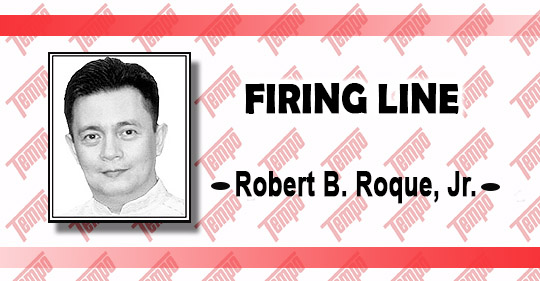The working press has found an ally in Senator Raffy Tulfo in batting for the decriminalization of libel and cyber libel.
In a recent Senate hearing, Tulfo stressed that since members of legitimate media organizations are held to a high standard of professionalism and ethics, their freedom to report should not be curtailed or subject to threat of criminal penalties such as imprisonment.
His point there is not just valid but true. But it opens a debate with certain members of the academe who believe that if the law does not see libel as a criminal act when committed by a journalist, the same should hold for any other citizen who commits libel.
A University of the Philippines (UP) associate professor claims that the distinction between legitimate members of the media and ordinary citizens pretending to be journalists – as referred to by Tulfo as “pseudo-journalists” – is prejudiced or discriminatory against citizen journalism.
* * *
The problem with some vloggers, writers, and broadcasters who supposedly take on this role as “citizen journalists” is that they do not have a background in journalism and are ignorant of the true purpose of journalism.
As a result, many behave as biased purveyors of fake news on various media platforms, with the most followed among them ending up as paid trolls. As aptly put by Sheila Siar of the Philippine Institute for Development Studies: “Trolls have made disinformation their livelihood.”
I taught journalism at the University of Santo Tomas for over a decade and chaired its department for a couple of years. My students, many current practitioners in mainstream media, can vouch for the lessons learned in keeping faith with its code of ethics, from news writing, column, and editorial writing, to investigative reporting.
Let me share a portion of Bill Kovach and Tom Rosenstiel’s “The Elements of Journalism.” They wrote that 10 points are needed to fulfill the task of providing “people with the information they need to be free and self-governing”:
1. Journalism’s first obligation is to the truth.
2. Its first loyalty is to citizens.
3. Its essence is a discipline of verification.
4. Its practitioners must maintain an independence from those they cover.
5. It must serve as a monitor of power.
6. It must provide a forum for public criticism and compromise.
7. It must strive to make the significant interesting and relevant.
8. It must present the news in a way that is comprehensive and proportional.
9. Its practitioners have an obligation to exercise their personal conscience.
10. Citizens have rights and responsibilities when it comes to the news as well — even more so as they become producers and editors themselves.
Goodbye, pseudo-journalists and trolls!
* * *
SHORTBURSTS. For comments or reactions, email [email protected] or tweet @Side_View. Read current and past issues of this column at http://www.tempo.com.ph/category/opinion/firing-line/


